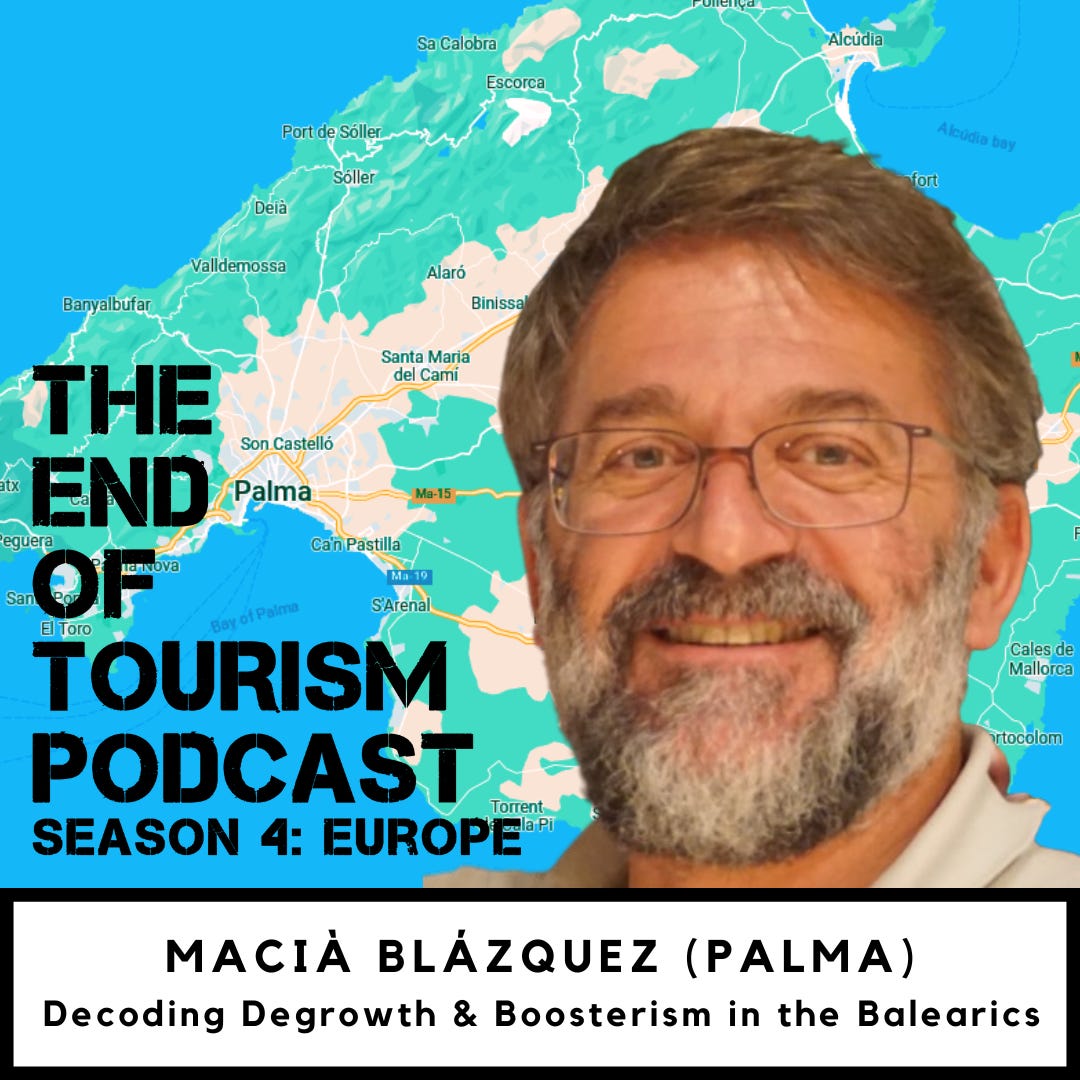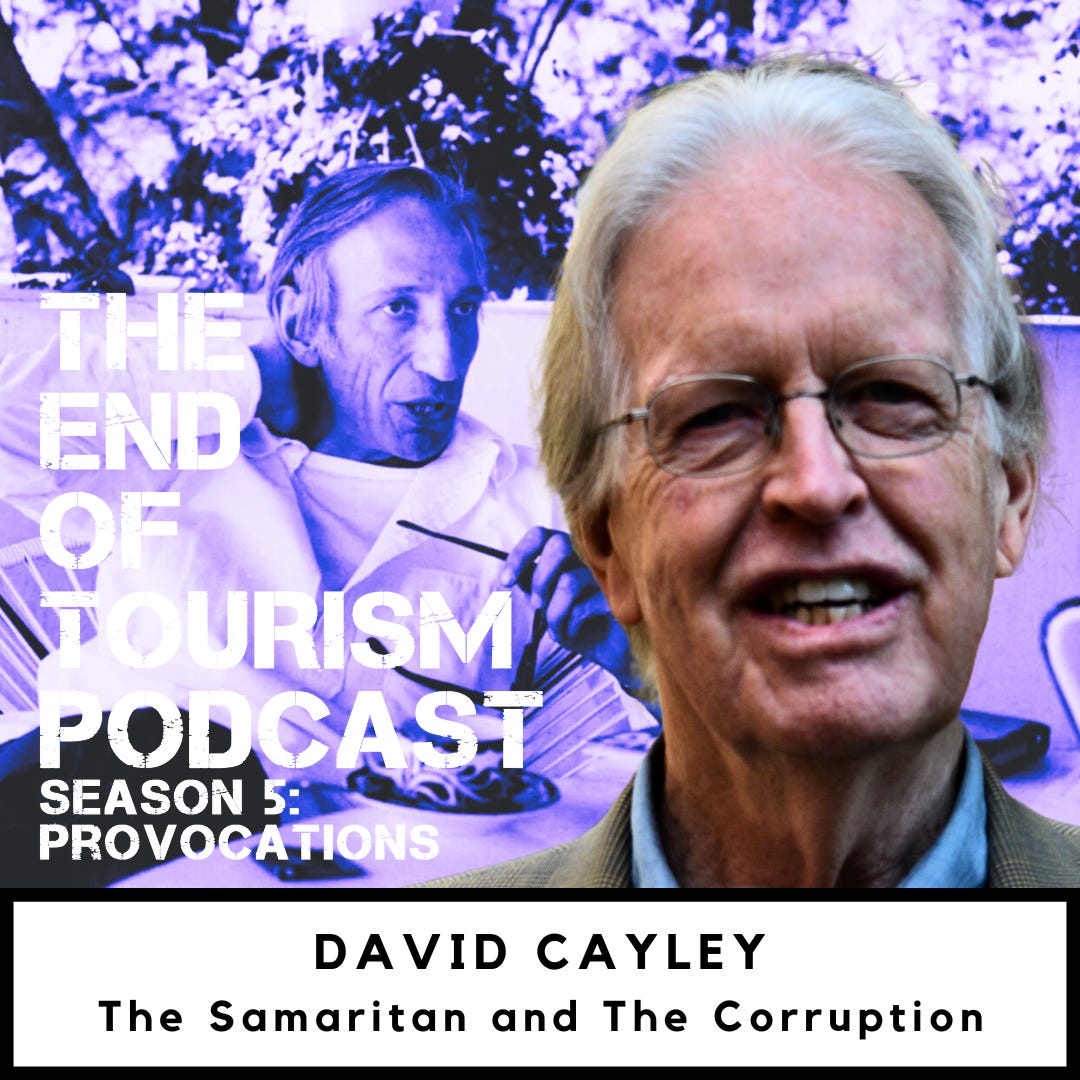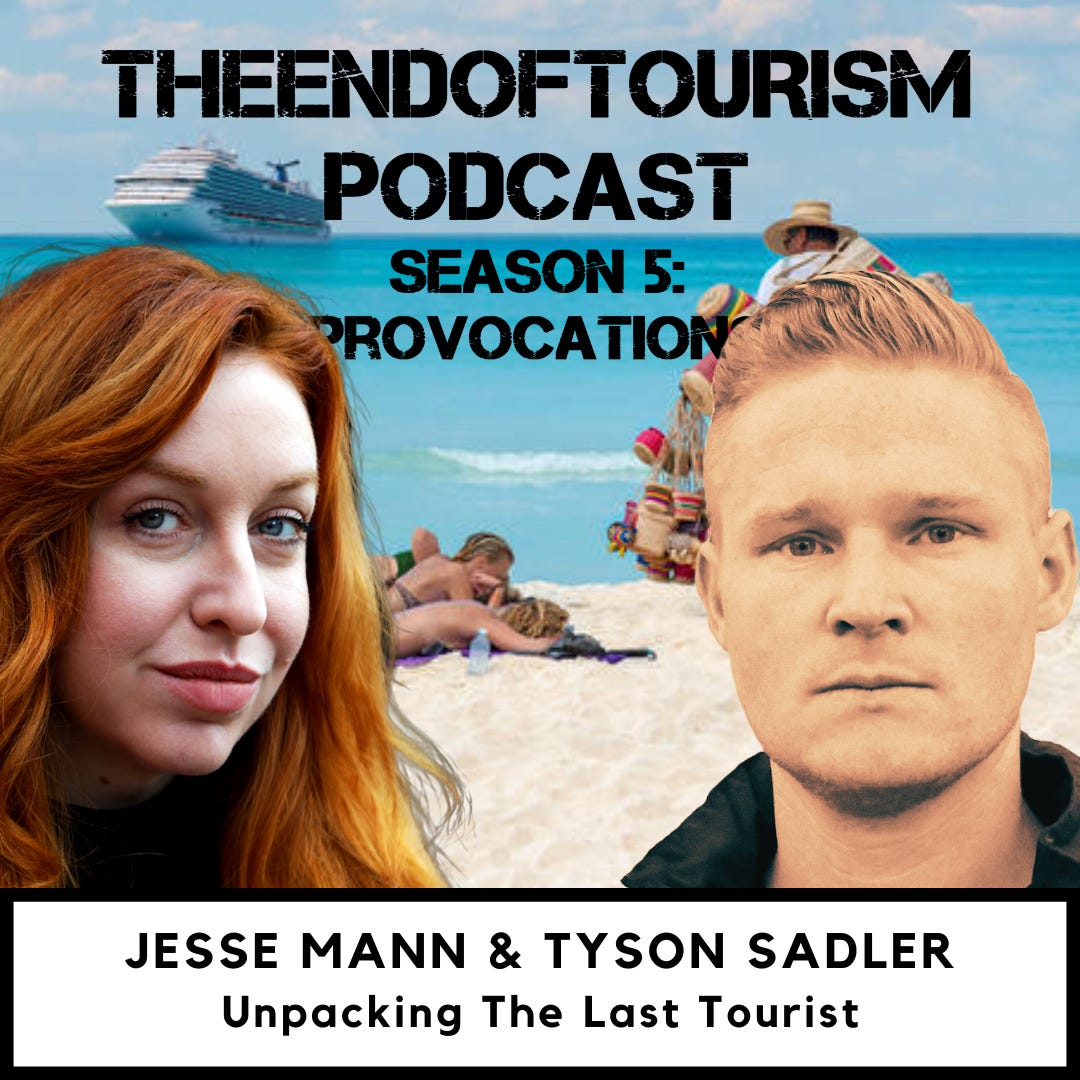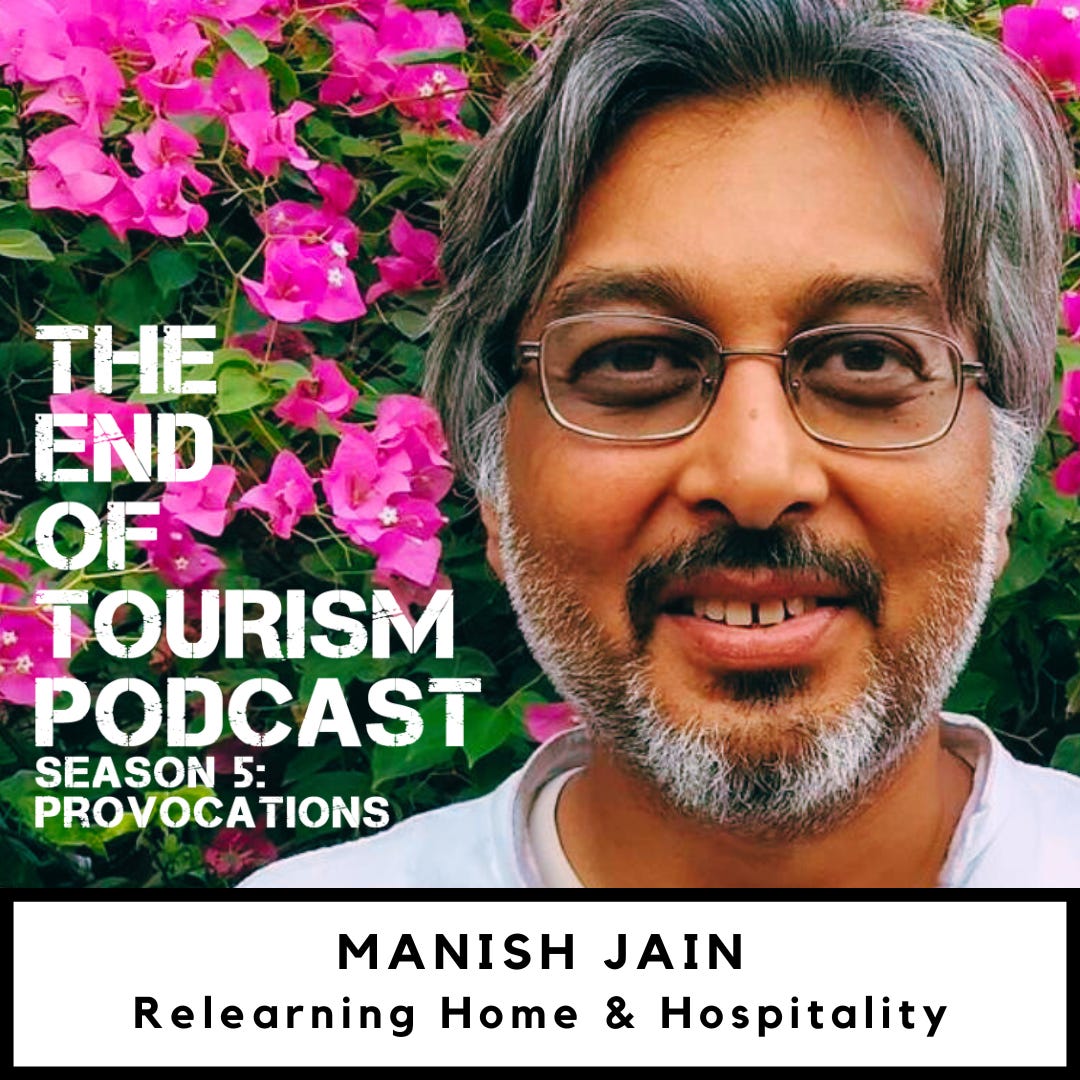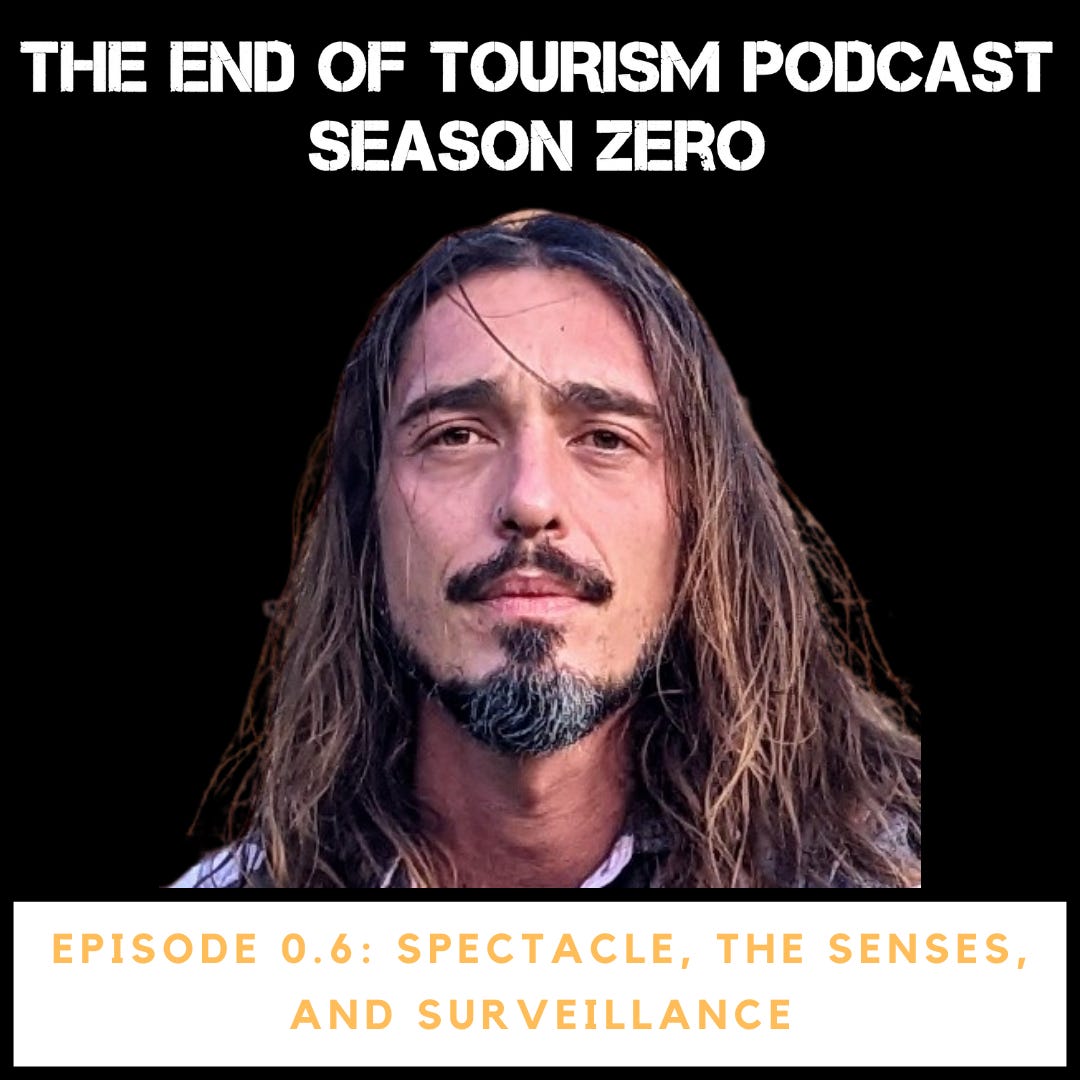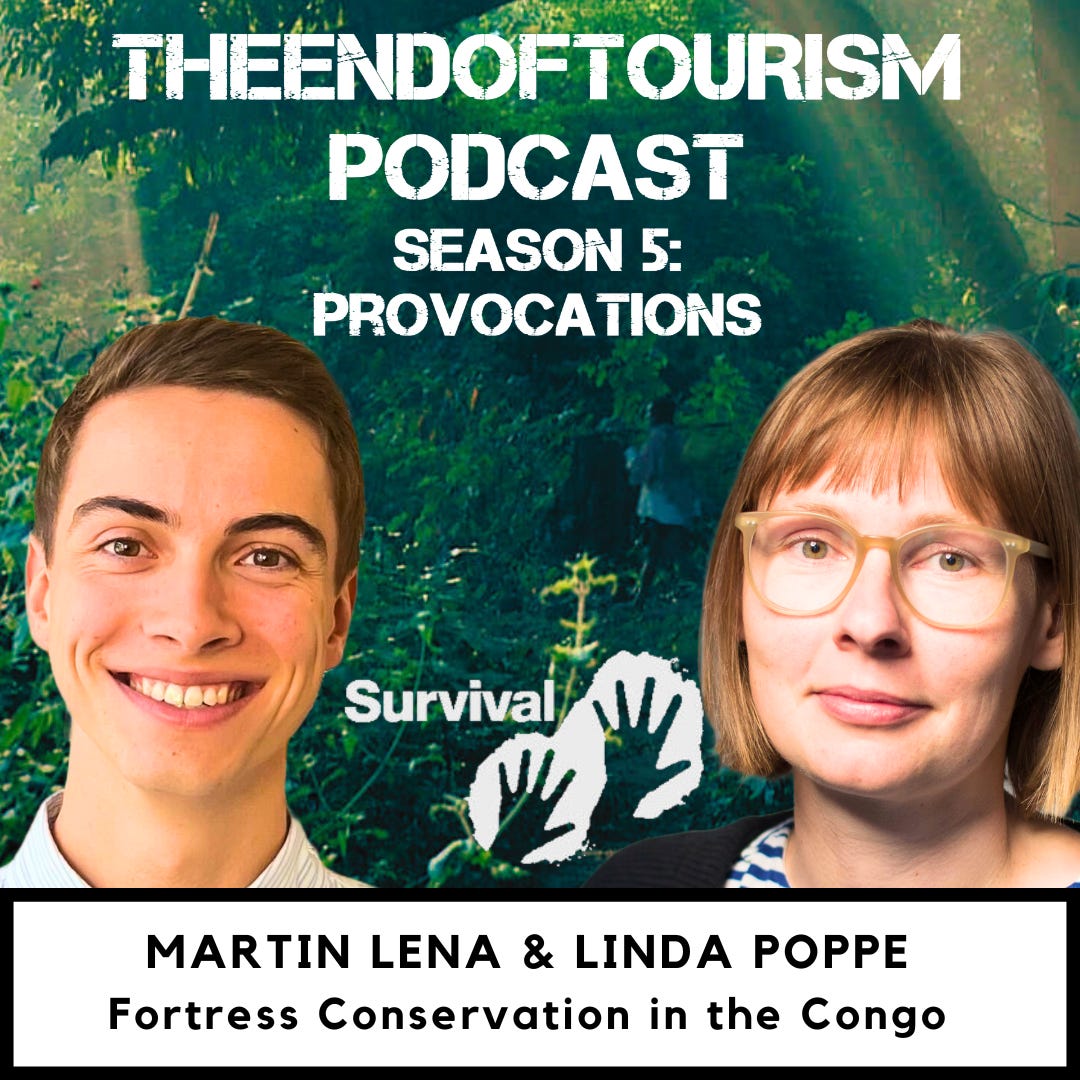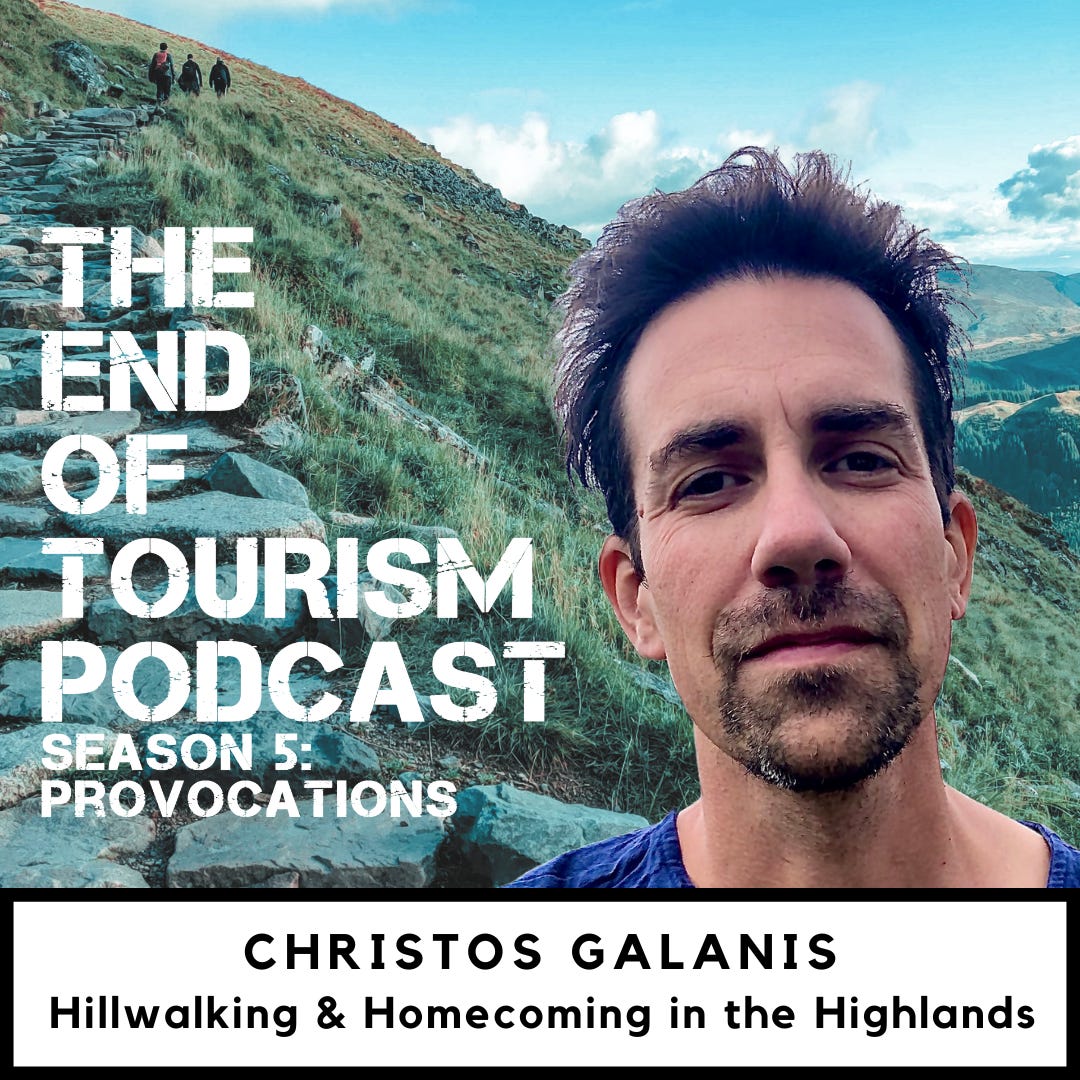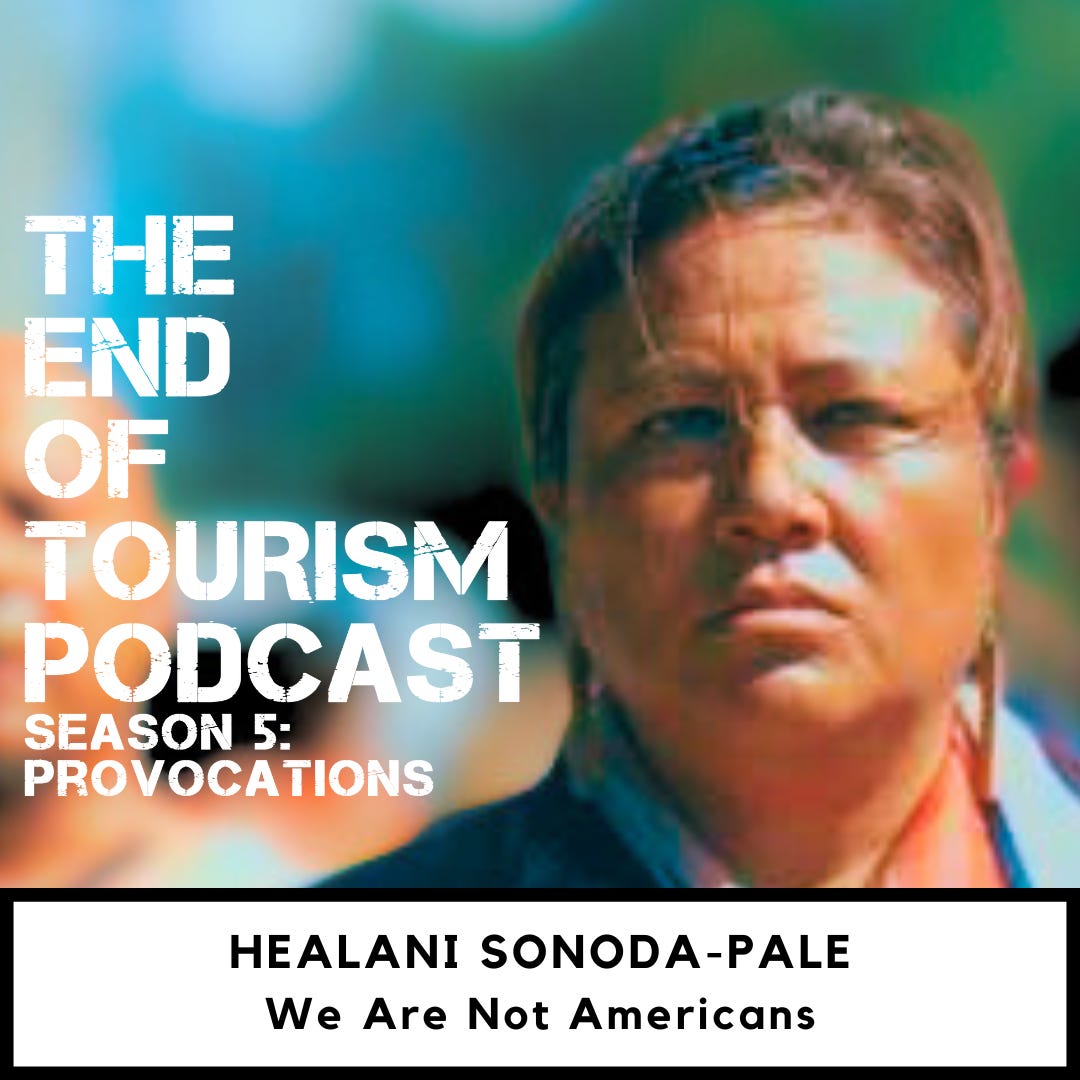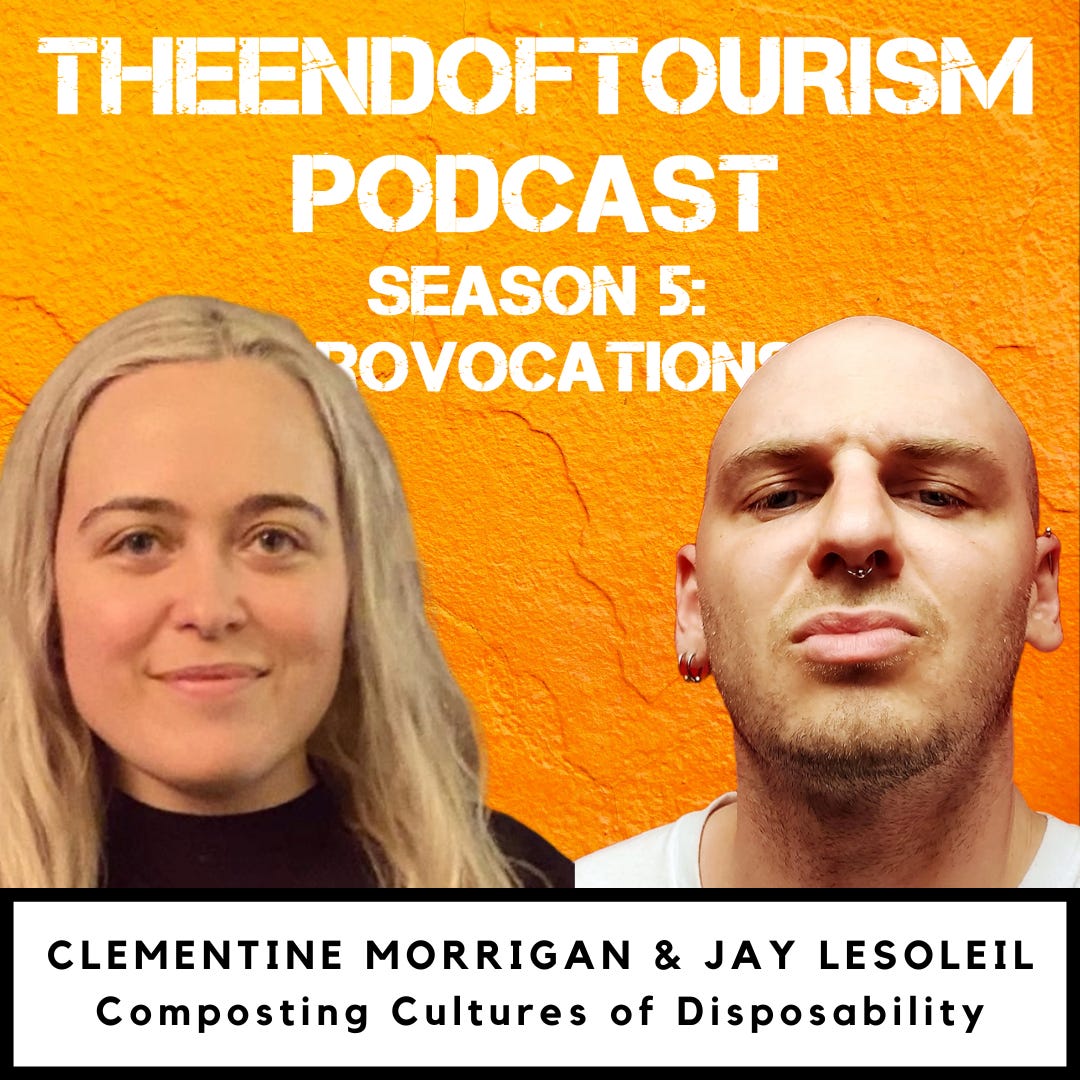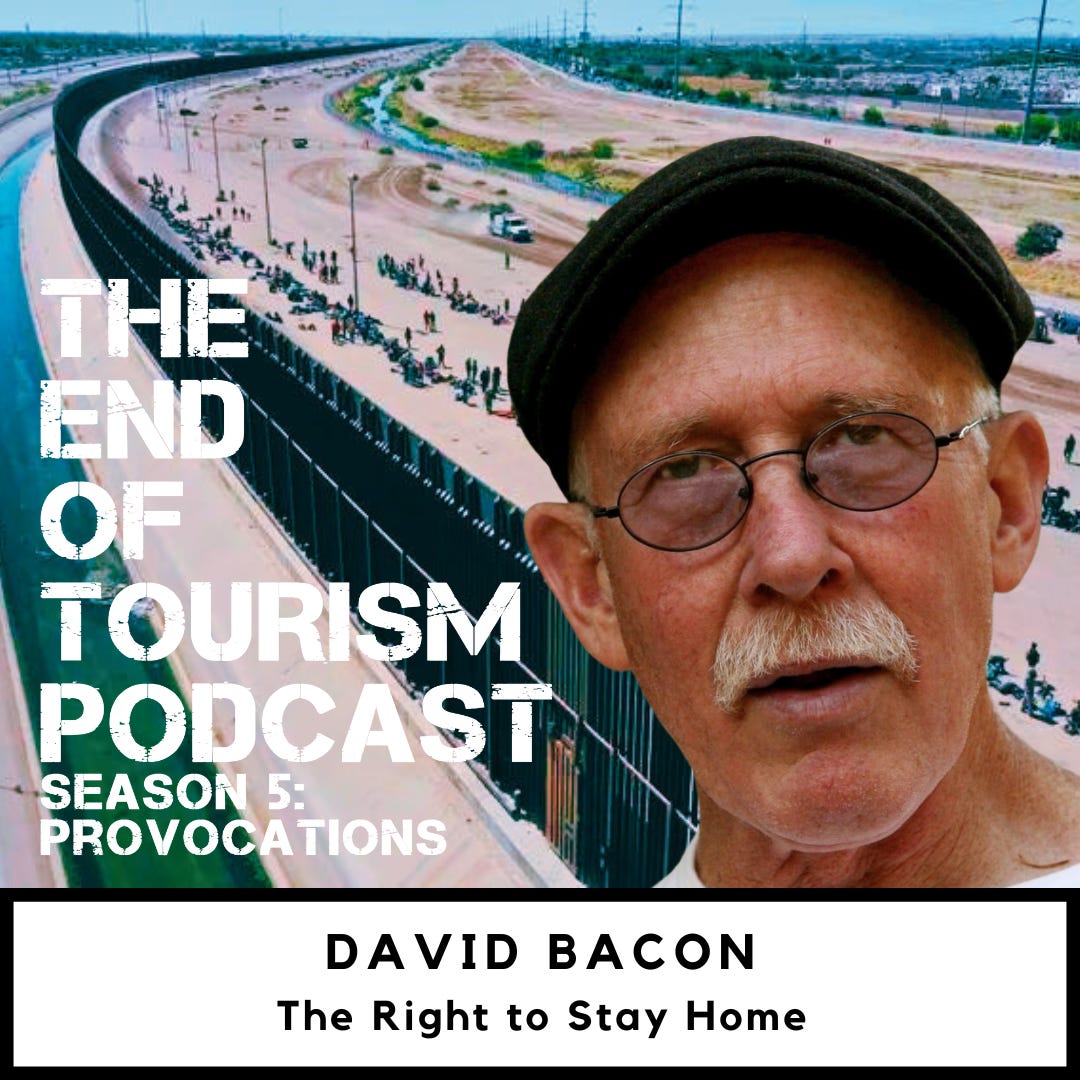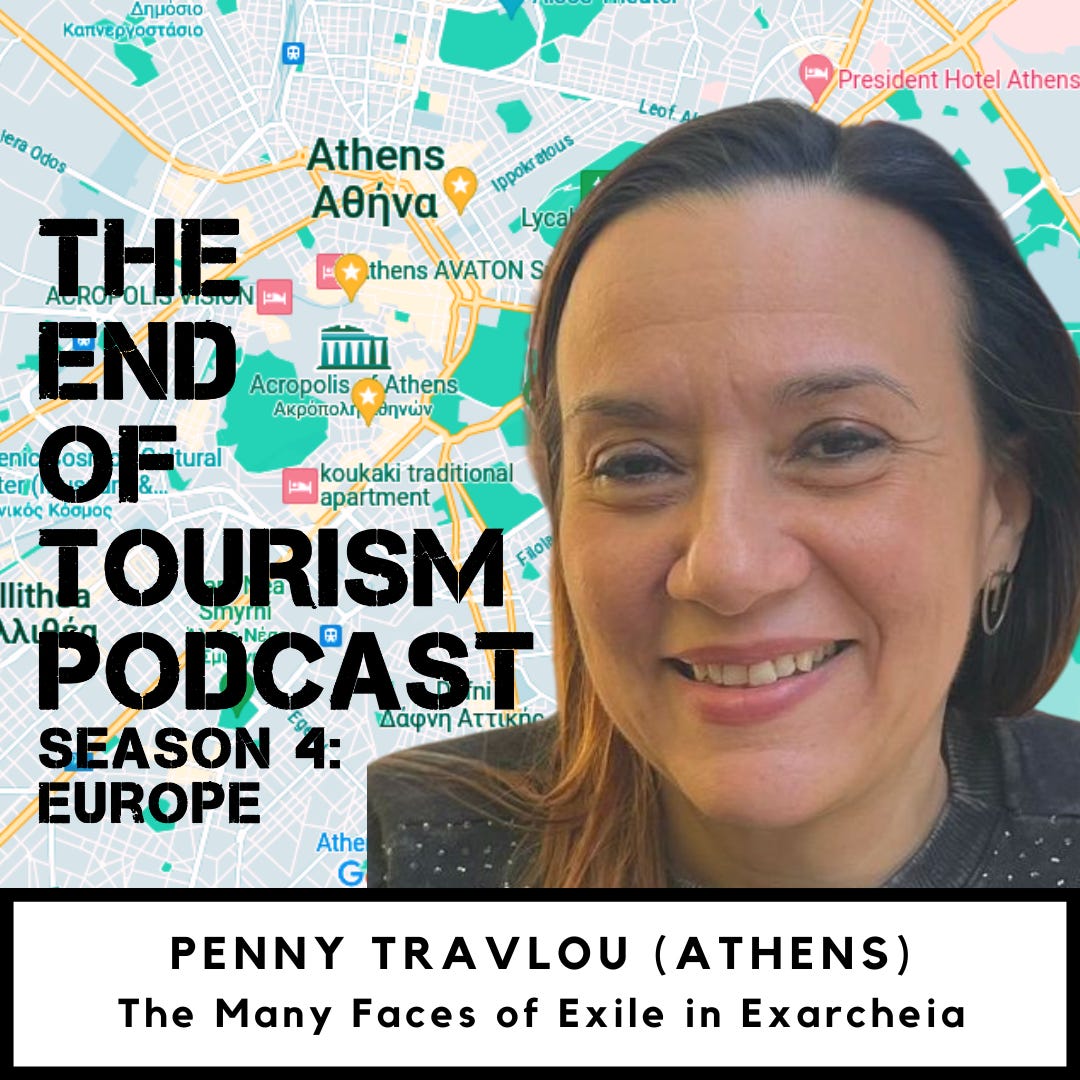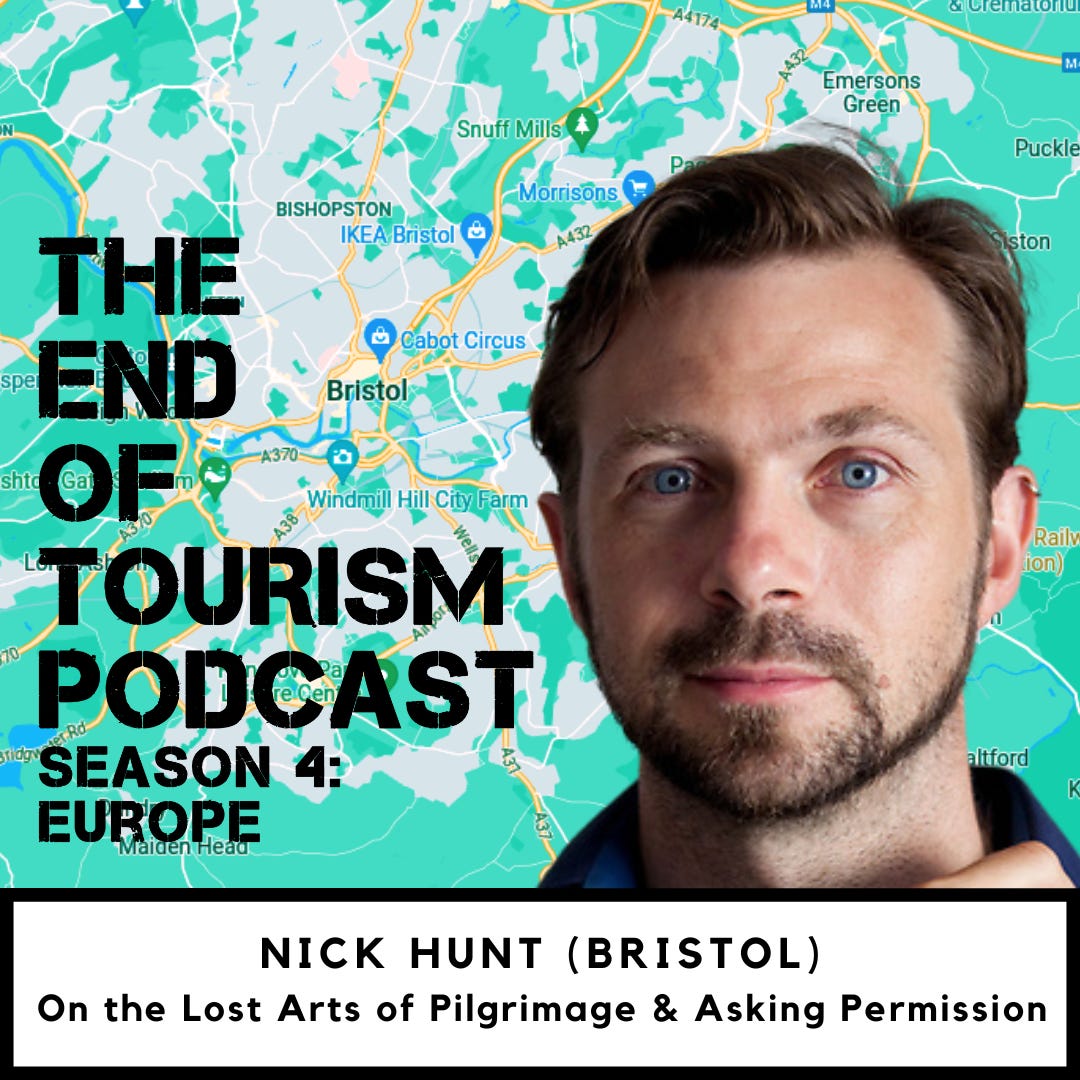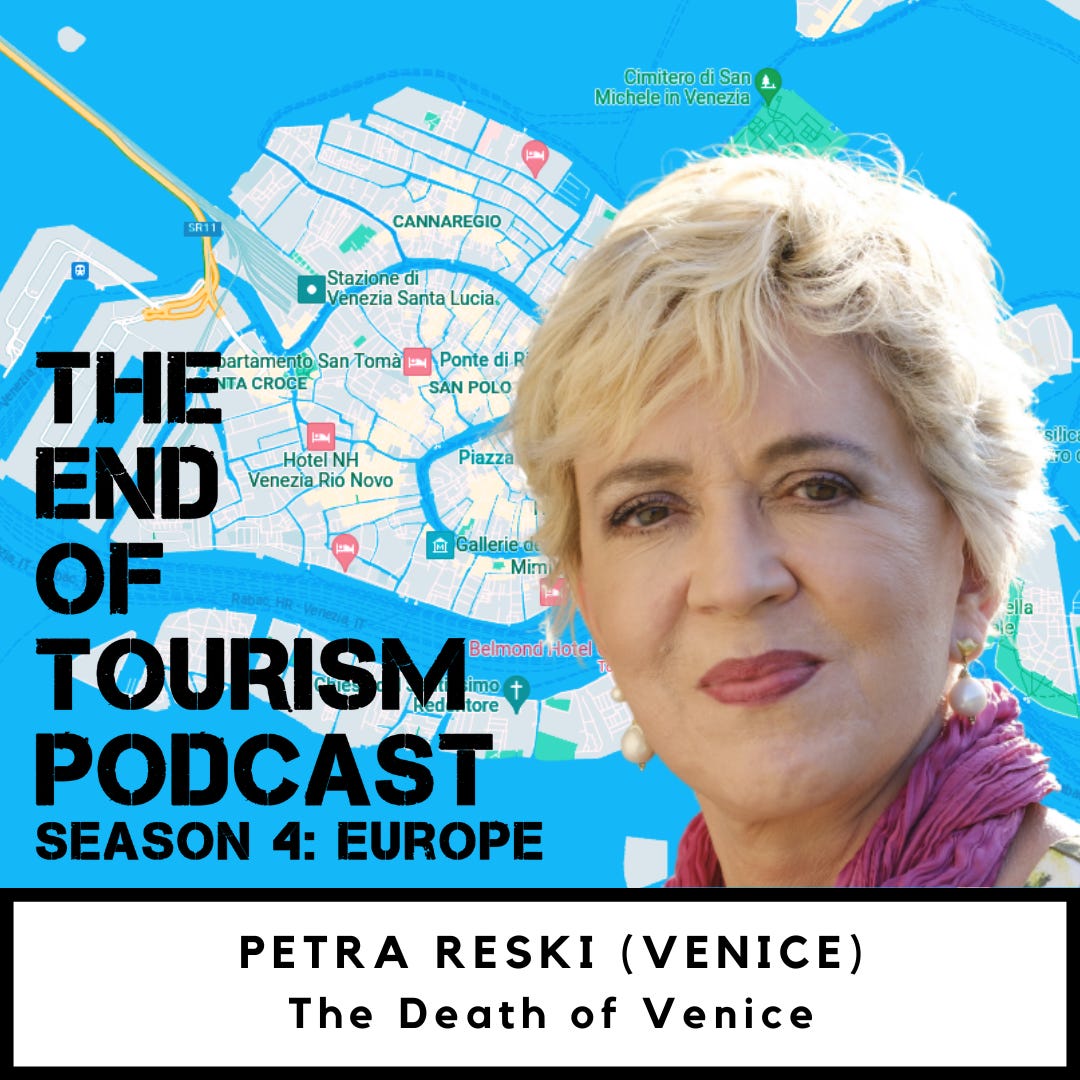S4 #6 - Decoding Degrowth & Boosterism in the Balearics w/ Macia Blazquez
Description
On this episode of The End of Tourism Podcast, my guest is Macià Blázquez-Salom, a professor at the University of the Balearic Islands, who specializes in the Geography of Tourism, Territorial Planning, Sustainability and Degrowth. He utilizes his teaching and research activity in the environmental movement (and vice versa), and through his activism in the Grupo Balear de Ornitología y Defensa de la Naturaleza (GOB) and Alba Sud.
Show Notes
Macia’s Journey in the Balearics
The Beginning of Mass Tourism through Currency Devaluation
Contradictions in Mallorca
Cocoon Tourism in Spain
You Want to Work in the Balearics, You Have to Sleep in a Tent
Boosterism and Green Boosterism
Degrowth Definitions and Contradictions
Imagining Other Modes of Travel
Imagining Other Modes of Resistance
Homework
Google Scholar: Macia Blasquez
Orcid: Connecting Researchers with Researchers
Transcript
[00:00:00 ] Chris: Welcome Macia, to the podcast. From what I've been able to dig up around your life and work that you've been studying, tourism and its contradictions for a very long time. Now, I'd like to ask you what drove you towards a career as a professor and critic of the tourism industry?
[00:00:24 ] Macia: Well, in fact, even before finishing my degree, I was involved in social movements here in the Balearics, in Mallorca, particularly. I was member of the committee of the volunteers collaborating with the GOB, which is the biggest ecologist group. Then by the eighties and perhaps influenced by this collaboration, I decided to study geography and to analyze the relation in between tourism and natural conservation, because by then we had promotion after the tourism boom in the sixties and seventies.
The eighties Spain became member of the European Union and some of our politicians, they decided and they were promoting the Balearics as second residents destination for north European people, and this means that investment in the real estate market even increased with foreign people buying second residencies and promoting as well the promotion of more urban development for this purpose.
And that was written in the natural areas due to what we call "green" or "gray-grabbing" with new facilitation of land here in the Balearics. And this was the main aim I had to develop my research on this topic, with special planning and natural conservation in the Balearics.
Afterwards we had what we called the real estate bubble that began in the nineties and burst in 2008. And that was a period when I was more involved, particularly in the social movements. In fact I feel more related with activism than with academia. After the crisis with my age, I took the decision of giving support to younger people in the social movements and devote more time to the academia with colleagues Ivan Murray or Ernest Canada or Robert Fletcher or Nora Muller, other people who are working in this research group in the University of the Balearics Islands. But I still working with the NGOs Alba Sud, particularly the GOB, and other social movements in this region in the Western Mediterranean region particularly.
[00:03:03 ] Chris: I have some questions regarding these social movements that I think maybe we'll get to in just a bit.
But, I'd like to try to offer a bit of context for our listeners in part because before I heard of your name and before I interviewed our mutual friend Ivan, for the first episode of the podcast, I don't think I had ever heard of Palma or Mallorca before, even as someone who had traveled through Europe and many other parts of the Mediterranean.
And so I'm curious if you could give us a bit of background on how Palma came to be over touristed, or at the very least, what you've seen come to pass in your time there. I mean, I know it's, it is also historically has a lot of deep importance for the Spanish state and Mediterranean history culture.
[00:03:55 ] Macia: I'm sure you have heard about the dictatorship of Franco in the forties, fifties. Mm-hmm. Fifties. He was given support to the Luther in the second World War. And after the defeat, the technical support he had was coming from Opus Dei, was introducing tourism and real estate business as a way to have foreign direct investment.
And as a result, Spain had a very important development of, of real estate business in this new areas particularly related with sun and sea tourist resorts. Perhaps you have heard about Costa Del Sol, Benidorm in Costa Blanca, or Costa Brava in Catalonia. And the same for the Balearic Islands. During that period, in the case of of M we had a huge amount of new hotels being double developed.
And they were financed partly by people coming from North Europe, particularly from Germany. There was a novel accumulation of capital in that, in those regions that have had industrial development and investors realized that tourism could be a good business, introducing this way of consuming savings, consuming income for working class people in the UK, in Germany, and this is how in the Balearics we had the development of what we call the tourist boom in the sixties with hundreds of hotel being built up every month really in Mallorca, in Ibiza. Perhaps you have heard about Ibiza, right?
[00:05:52 ] Chris: And this is just to be clear, this is in the first decade of international mass tourism post-war, correct?
[00:06:01 ] Macia: In the Sixties, because the two first decades after the war, our regime, the dictatorship of Franco was defeated. I mean, they were given support to Hitler and Mussolini and Spain was set aside. And the model they were following was self-sufficiency. We became members of the UN United Nations by the end of the Fifties when Franco decided to take this option of promoting foreign investment, making the change of currency with the foreign currencies possible.
And it was through devaluation of the peseta, this means that investing from the UK, Germany, or even the United States, or for tourists coming to Spain, visiting our country, was so cheap due to this devaluation of the currency. And this way we had that mass tourism development and mass foreign investment, foreign investment and flows of people coming here for holidays and enterprises developing their activities for profit.
This was the beginning and the result were that after all those years, we now have eight hundred thousand tourist beds in the B alearics and we had 16.5 million tourists last year in the Balearics, 2022. And this is a huge amount of tourists for an archipelago that just has. 5,000 square kilometers, 1.1 million inhabitants.
Most of our tourists are coming from the UK. Let's say 25%. Germany, another 25%. This means 8 million tourists coming from Germany. Then we have 13% coming from mainland to Spain. And then we have people from Scandinavia, Norway, Sweden Denmark, the Netherlands. They come here looking for sun warm weather conditions during the summertime, particularly during the high season.
This is July, August, September. This is when we are having more over crowded beaches, traffic jams in the roads and the touristification of every single place in our islands. Because by the beginning, tourists were going particularly to the tourist resorts. But nowadays the countryside, natural areas, villages and, and even the historical center of the cities is being touristified.
You can find boutiques, you can find terraces of bars and restaurants, all of them changing very quickly, the landscape and the way of life of our places.
[00:09:17 ] Chris: At what point in your life did you arrive in the Balearics, in Mallorca, or are you from there?
[00:09:23 ] Macia: I'm from the Balearics. The mother of my father Fr was from Palma. And the parents of my mother were from M and I was grown here. It's quite common in places like Balearics to have roots, to have grown people is not moving that much. Right. I attended my degree and I finished my PhD thesis, and now I have my job here and this is common. We're not moving that much.
[00:09:54 ] Chris: Well, it's a bit of a blessing to hear that there are people in the world still who live in the same place they were born, which is more and more rare. I guess I'm curious, you know, over the course of your life then, in Palma, is there one thing that you might be able to single out as perhaps the most startling or biggest or devastating change that you've seen there?
[00:10:19 ] Macia: Yeah. Well in fact it has to do with my political position during that moment because we had a right wing go government from 2003 to 2007 with Lots of cases of corruption related with mega pr This means projects with a budget higher to 1000 million euros. They were projects to promote highways, to promote big infrastructure, transport infrastructure, a new harbors, enlarging the airport equipment.
Instead of refurbishing the hospital, they decided to build a new hospital. And this is nice, but at the same time, they were meeting and we have collected information about those meetings to arrange, Communicating in between big entrepreneurs and politicians. Where and how was that development going to be?
And they were changing this information to give advantage to the investors in a way which is nowadays considered as corruption. Many of those politicians are even nowadays in jail because of those cases. And during that period I was involved as a representative, as a volunteer giving support to the campaigns for the right to the island, demanding the

